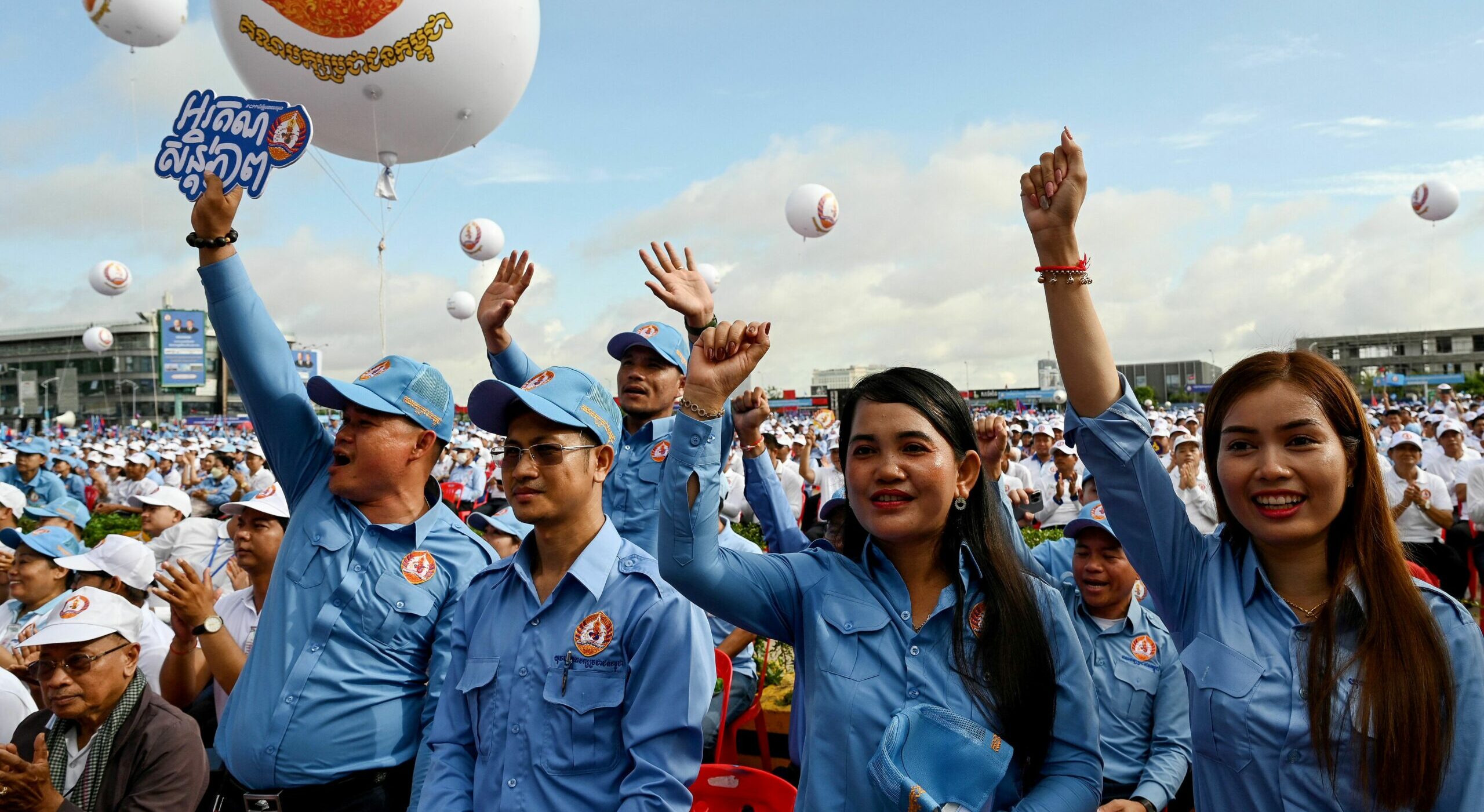We assess that a general election scheduled for 23 July in Cambodia is likely to pass off mostly peacefully.
This assessment was issued to clients of Dragonfly’s Security Intelligence & Analysis Service (SIAS) on 5 July 2023.
- A general election in Cambodia on 23 July is unlikely to lead to significant operational disruption in major cities, including Phnom Penh and Siem Reap
- We forecast with high confidence that the ruling Cambodian People’s Party led by prime minister Hun Sen will win the poll
- The authorities are likely to harass the workers of any organisations who publicly question the fairness of the vote or the government
The long-ruling Cambodian People’s Party (CPP) is almost certain to win thanks in large part to a concerted effort by prime minister Hun Sen to exert control over the judiciary; in May, the electoral authorities barred the only credible challenger – the main opposition Candlelight Party (CP) – from contesting the election.
Repressive social and security controls implemented by the state authorities also mean that there is a high risk of digital surveillance and arbitrary harassment. That said, the polls are likely to lead to recurring transport disruption. Disruptive and violent unrest around the poll is still unlikely, on current indications.
Hun Sen likely to further consolidate power
The ruling CPP party seems likely to follow a tried-and-tested approach to ensuring it stays in power. The party won every contested seat at the 2018 general election after the electoral authorities banned the then-main opposition party from contesting those polls. In a similar vein, the Constitutional Council ruling that bars the opposition CP party from the upcoming election means that the CPP will be practically unopposed. And the 17 other parties contesting the poll do not offer a credible challenge, in our analysis, due to low levels of public support and funding.
Low likelihood of violent protests and disruption
The campaign period that officially began on 1 July is likely to pass off mostly peacefully. There were violent opposition protests after the 2013 general election when the opposition accused the CPP of skewing that election in its favour. But a similar street challenge now seems unlikely due to the government’s tight grip on power. In May, the CP said it had called off a planned protest in Phnom Penh indefinitely, following a public threat from Hun Sen to ‘handcuff [protesters] immediately’. And in recent days, many CP members have reportedly defected to the CPP amid government threats of violence. The CP has also reportedly said that it will not hold any protests ahead of the vote.

Intensified government crackdown on political opposition, trade unions and media ahead of the polls has led to a marked decline in protest action so far this year. According to our partner organisation, the Armed Conflict Location & Event Data Project (ACLED), there were just 41 protests in the first six months of this year, compared to 128 during the whole of last year. Based on the same data, protests also declined in frequency ahead of the last 2018 general elections due to a crackdown on opposition and media by the government.
The authorities appear well-placed to secure the upcoming vote and would likely quickly suppress any post-election protests, in the unlikely event they occur. In April, a CP protest that attracted around one hundred activists in Phnom Penh lasted only a few hours before the police moved to disperse the protesters. The authorities reportedly plan to deploy nearly 100,000 additional security forces around the vote in Phnom Penh and all other constituencies; this is consistent with security arrangements for previous polls. And we have not seen any specific advice by Western governments indicating that they assess there to be a significant risk of unrest around the polls.
State agencies’ risk remains high ahead of election
The government is also unlikely to tolerate any public criticism of the government ahead of the polls. The authorities frequently monitor social media accounts and have expanded the legislation around this in recent years to clamp down on any unfavourable commentary, according to local press and NGO reports. This is probably to preserve its public image. People and organisations that question the legitimacy of the vote or call for a boycott are likely to face a risk of harassment, legal actions and threats from the authorities.
Local media organisations and independent journalists are at the most risk of hostile state surveillance, censorship and harassment ahead of the polls, in our assessment. An international human rights organisation reported in April that several local journalists deemed critical of the government have been detained and sentenced to prison terms in recent years. And operating licences of several local media outlets have also been revoked, most recently in February.
Image: Supporters of the ruling Cambodian People’s Party (CPP) participate in a campaign rally ahead of the upcoming election in Phnom Penh on 1 July 2023. Photo by Tang Chhin Sothy/AFP via Getty Images.




